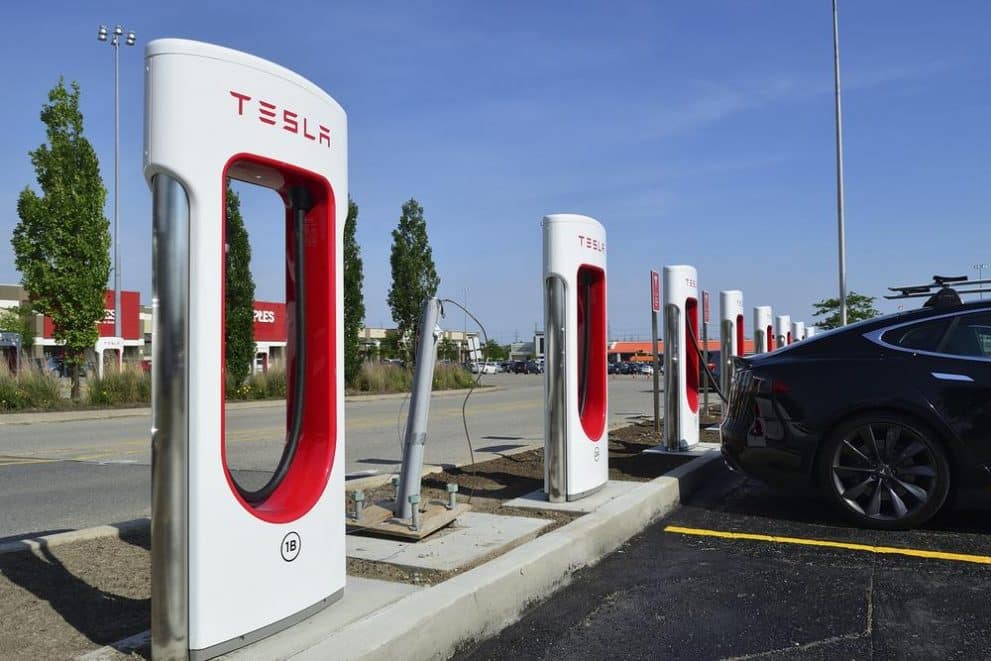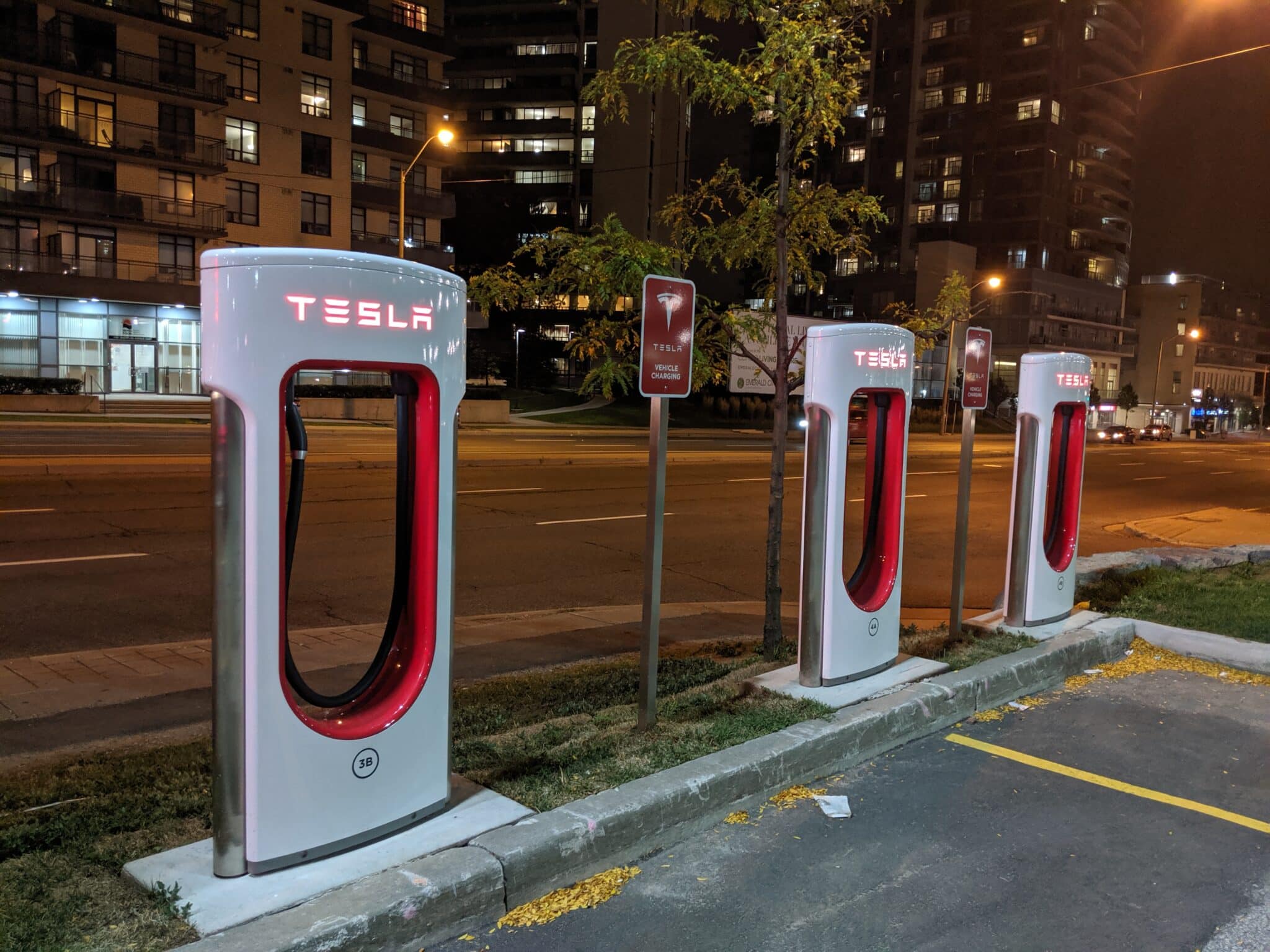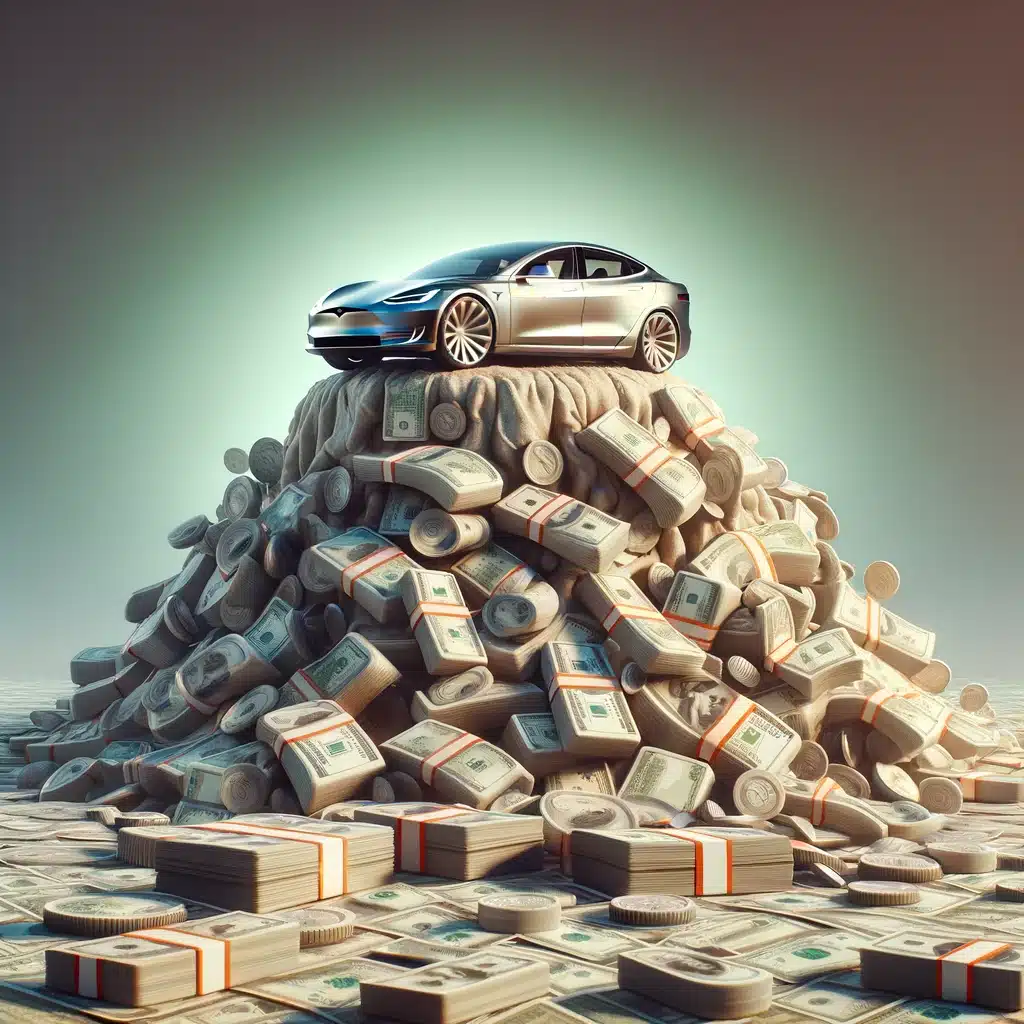
By now, investors are quite familiar with Tesla (Tesla Stock Quote, Charts, News, Analysts, Financials NASDAQ:TSLA) and the world-conquering/saving ambitions of its mercurial leader Elon Musk, and early fans of the stock have been richly rewarded.
But while it’s clear that Tesla has proven itself as a legitimate, profit-making car company, the way forward may seem a little more murky, what with every other automaker well on their way to electrifying their fleets. Is Tesla going to drown or swim with the wave of EV adoption across the industry? For a number of reasons, portfolio manager Paul Harris says the smart money is on Tesla not only surviving but thriving.
“It’s hard to speak to the valuation of that company, which is extreme in some ways, but I think what’s important about it is that Tesla is the new iPhone and everybody else is, you know, Nokia or [BlackBerry] when it comes to EVs,” said Harris, partner at Harris Douglas Asset Management, who spoke on BNN Bloomberg on Monday.
Tesla’s share price has bounced around over the past 12 months, scratching out about a 16 per cent return since the end of August 2021. That’s still a pretty good showing during one of the market’s most deadly stretches in years, especially for technology stocks, which have been put through the wringer since last November when investors left tech in droves, seeking shelter during the currently dubious economic environment.
But it’s the long-term returns on TSLA that still glow like gold, since after adjusting for the recent three-for-one stock split, Tesla shares have gone from about $20 a pop as recently as November 2019 to now upwards of $300 per share — that’s about a 15-fold increase in value in less than three years.
Harris says the allure of Tesla remains, simply because their tech and their lead in the EV field are likely to be difference-makers for years to come.
“If you look outside your window, I think you’ll see tons of Teslas go by and you don’t see too many other [EV’s]. I think they’ve got a huge advantage in that area,” he said. “Their cars look beautiful, that’s number two. Number three, they’ve got a lot of data from their existing base of clients and that continues to grow and grow. They’re basically a computer on wheels.”
They may be late to the party but most carmakers are now on board with electrification and many have put up targets to green their fleets over the next decade. Toyota, for example, aims to have 30 electric models by 2030 and has earmarked $70 billion to reach its goal. Meanwhile, Volkswagen has said half of its vehicles will be battery-powered by 2030.
But even those promises seem light in comparison with Tesla, which is of course already all-electric but has established 20 million EVs as its goal by 2030 — that’s huge considering the total output of all autos worldwide is around 60-70 million autos per year.
Harris has a fourth point in Tesla’s favour and that’s the huge head start it has over other car companies when it comes to electrification.
“The problem for the other car businesses is there are only around 200 parts in a Tesla and 2,000 in a combustion engine, so the reality is that you don’t need that many people to work on it or to build it, and you’ve got these other car companies that have these legacy businesses that they have to keep running, to have that EV business grow,” Harris said.
“So it’s a very tough business and a tough time for GM and Ford and all the others because they have to be two different companies. Tesla can just be one company. And I think that as they grow their data they become more efficient and better at what they’re doing,” he said.
A fifth positive for Tesla is that in having essentially first-mover advantage as an all-EV car company Tesla has simply caught on faster than the rest to the prevailing winds and is thus going to reap more of the benefits of those macro changes. The United States, for instance, has just passed the Inflation Reduction Act, a $750 billion bill to address deficiencies in, among others, the country’s climate agenda. Specifically, the IRA will involve up to $7,500 in tax credits for electric vehicle purchases, with Tesla’s popularity with consumers sure to mean higher sales in the US.
Speaking of Tesla and the IRA’s potential impact was Deutsche Bank analyst Emmanuel Rosner who, as reported by Yahoo Finance came away impressed by a recent site visit to the company’s Gigafactory in Berlin.
“Tesla commented that demand for its vehicles remains strong, outpacing its ability to supply,” Rosner said. “This is certainly the case in the US, and could become even more acute after the [Inflation Reduction Act] takes effect in January 2023.”
“[O]ur view is that it can see solid benefit from IRA and potentially qualify for three large sources of subsidies: tax credits to EV buyers (up to $7,500 per vehicle), subsidies to EV battery cell producers in the US ($35/kWh), and subsidies to US producers of battery modules and packs ($10/kWh). All in, we believe 2023 could be a pivotal year for Tesla and continue to view it as one of the most attractive stories in the autos sector.”
Currently, Deutsche Bank has a “Buy” rating on TSLA and a 12-month price target of $375 per share.






 Share
Share Tweet
Tweet Share
Share




Comment